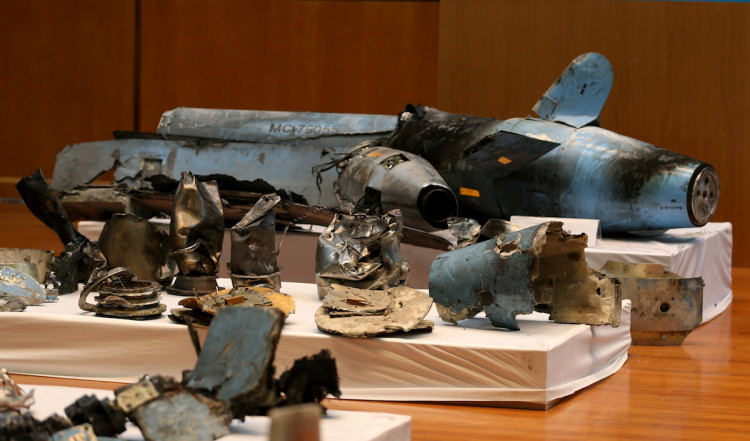Iran has lost the support of the world's most powerful countries still sympathetic to its plight when France, Germany and the United Kingdom blamed it for launching the devastating cruise missile and aerial drone attacks on Sept. 14 that blasted two of Saudi Arabia's largest oil sites.
On Monday, French president Emmanuel Macron, German chancellor Angela Merkel and British prime minister Boris Johnson released a joint statement at the United Nations saying there's no question Iran is behind the drone and missile strikes on Saudi Arabia that temporarily knocked-out half of Saudi Arabia's oil production capability.
"It is clear to us that Iran bears responsibility for this attack. There is no other plausible explanation. We support ongoing investigations to establish further details," they said in the joint statement.
"These attacks may have been on Saudi Arabia but they concern all countries and increase the risk of a major conflict," said the joint statement.
The three leaders were apparently persuaded to issue to stern joint statement based on the findings of their respective intelligence agencies, which came to the same conclusion pinpointing Iran as the mastermind.
The European powers also urged Iran to act more responsibly and in line with the terms of the Joint Comprehensive Plan of Action (JCPOA), otherwise known as the Iran nuclear deal.
The three nations were among those that expressed skepticism at the United States' immediate condemnation of Iran as the culprit behind the attacks only a few hours after it took place. U.S. secretary of state quickly blamed Iran but without presenting any evidence to prove his point.
France, Germany and the UK are among the European countries party to the JCPOA that have tried to maintain good relations with Iran despite president Donald Trump unilaterally abrogating America's part in the accord.
In particular, Macron has worked hard to keep JCPOA alive. He even tried to arrange a meeting between Trump and Iranian president Hassan Rouhani at the UN this week, but to no avail.
It remains unclear why Iran chose to launch the attacks when it knew full well intensive investigations would trace the attacks back to itself. Some analysts surmise Iran is exploiting Trump's unfulfilled campaign promise to get the U.S. out of its endless wars by staging a blatant attack it knows Trump won't respond to at the risk of angering his political base of supporters.
Iran calculates that since Trump won't use military force to avenge this attack -- or any other future Iranian attack on Saudi Arabia or the UAE, for that matter -- his only option is to engage in talks with Iran. And Iran has always said the removal of all U.S. sanctions is its pre-condition for holding any negotiations with Trump.
In effect, Iran has trapped the strategically inept Trump in an embarrassing lose-lose situation.
The success of Iran's strategy can be seen in Trump's meek and ineffective response to the attacks. He only increased sanctions on Iran, including its central bank, and said the U.S. will intensify pressure on Iran. No U.S. attacks on Iran are imminent.
US Special Envoy for Iran Brian Hook said the U.S. will address the issue of the attacks through diplomacy and a multilateral effort. Hook said there is a role for the United Nations Security Council to play in this regard.
He also said Washington wants to form a global coalition to counter Iran but the US was going to act "prudently."






